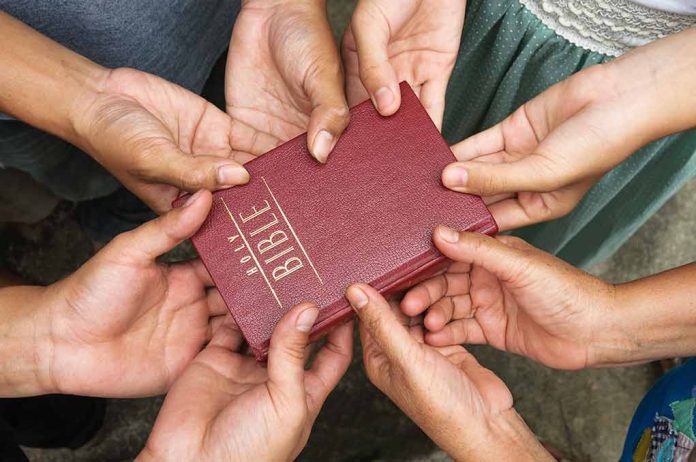
The historical clash between Christian and Muslim civilizations continues to echo in today’s global tensions, as highlighted by recent criticisms of Pope Francis’s leadership.
Key Takeaways
- Pope Francis was the first Jesuit and non-European pope in over a millennium.
- Critics argue his papacy did not adequately address the threat to Christianity from Islamic extremism.
- Many call for a pope who will more actively protect Christian values.
- The narrative explores the need for unity among Christians in facing modern-day extremism.
Historical Context of Christian-Muslim Clashes
Conflict between Christian and Muslim civilizations dates back centuries, with pivotal events like the First Crusade initiated by Pope Urban II in 1095, and the Second Siege of Vienna in 1683, marking significant moments in this fraught history. These battles were more than territorial disputes; they were seen as critical defenses of Christian Europe against advancing Muslim forces. Despite modern perceptions of religious coexistence, the historical echoes of these past conflicts remain relevant today as reports of Christian persecution in various parts of the world surface.
In recent years, Pope Francis has been a notable figure in advocating for interfaith dialogue, particularly between Christians and Muslims. His efforts included co-signing the Document on Human Fraternity in 2019 and holding meetings with Islamic leaders. However, critics argue these efforts have not adequately addressed the ongoing issue of Islamic extremism threatening Christian communities globally. Critics also express disappointment that Pope Francis, during his papacy, did not take a firmer stance in condemning the violence faced by Christians in various regions.
Criticisms of Pope Francis’s Leadership
Pope Francis, who passed away at 88 on April 21, 2025, left a legacy marked by progressive themes and global advocacy. Among his initiatives were significant engagements in environmental issues, and peace efforts, including his call for a ceasefire in Gaza during his last public address. However, some believe he failed to adequately address what they see as the threat posed by Islamic extremism to Christian values and safety, focusing instead on climate change and other social justice issues.
Critics have expressed the need for a firmer voice in the Vatican, akin to leaders like Pope Urban II, who actively rallied Christians against Muslim advances. These voices argue that Pope Francis’s focus on peace and interfaith initiatives distracted from pressing security concerns. The call is for the next leader of the Catholic Church to be a strong advocate for the Christian faith, one who would not shy away from confronting the realities of modern extremism.
A Call for Unified Christian Leadership
Amidst ongoing challenges from extremist factions, there is an increasing call within the Christian community for a strong leader who can unify believers across denominational lines. The emphasis is on choosing a Vatican leader who will prioritize the protection of Christian communities globally. This perspective sees a need for the College of Cardinals to select someone who will actively resist what they perceive as a dangerous religion-based ideology threatening Western civilization and Christian tenets.
The consistent theme throughout these discussions is the necessity for the Catholic Church’s leadership to adapt to the realities of the modern world while remaining steadfast in protecting and advocating for the Christian faith. The call for a proactive and vigilant new Pope grows amidst fears of declining Christianity in the face of external threats.





